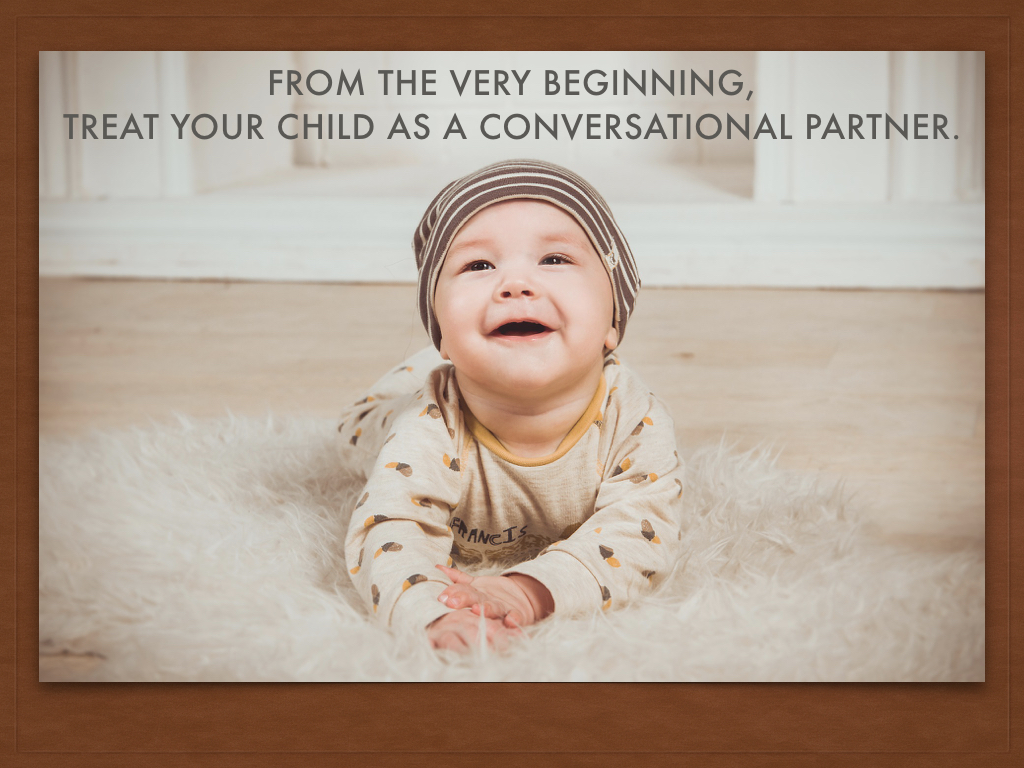Children develop their language(s) best when talking and interacting with others. So switch off that TV or iPad–real live interaction is key!
Kids learn a lot simply by interacting and talking with someone. It helps them become good conversation partners because they learn a ton of different communication skills. For example, they learn how and when to:
- initiate conversations with another person
- respond to another person who begins a conversation
- take turns at the appropriate time
- pay attention to the speaker
- give the other person time to speak
- continue a conversation (beyond just a single question-answer)
- use correct words to make it clear what they mean
- solve misunderstandings (e.g., by saying something in a different way or repeating something)
- carry on with a certain topic or introduce a new topic
For bilingual children, make sure they interact in both languages because all of the skills listed here usually vary between languages. For example, the appropriate time to take turns can differ from language to language. In some languages you have longer pauses between turns, in other languages pauses are shorter. So make sure they engage in conversations in all of their languages.
In a nutshell, children learn language(s) in everyday situations. So the more they can participate in interactions with adults, the more opportunities they have to learn to communicate in their language(s). And it does not even matter what you talk about. A broken shelf can be as interesting as an empty glass of water or a puppy in the street.
Tips for encouraging interaction:
- Keep it fun and engaging.
- Initiate conversations, but don’t force them.
- Respond in a positive and engaging way when your child initiates conversation.
- A good way to engage in a real conversation: books!
Oh, and you do not even have to wait until your child can carry a conversation. You can start having a conversation with your baby as early as 4 months when she begins to discover her voice. Simply treat all of those coos, squeals, giggles and yelps as if they were real contributions to a discussion. Try to engage her into conversations with her taking vocal turns.

